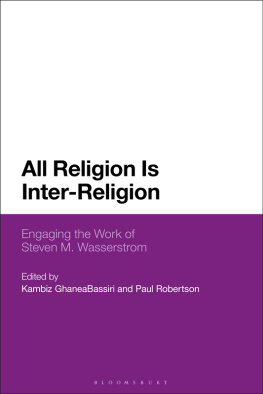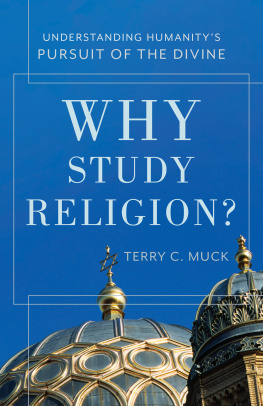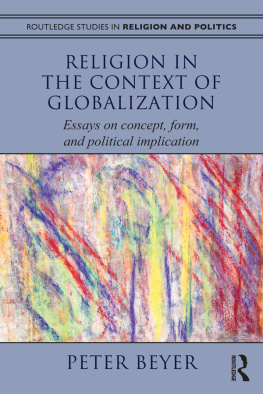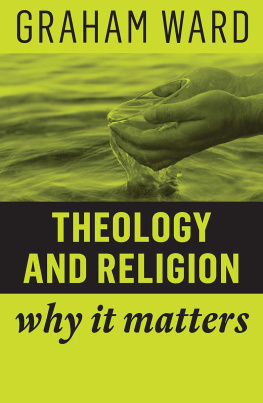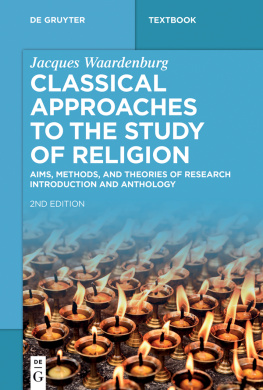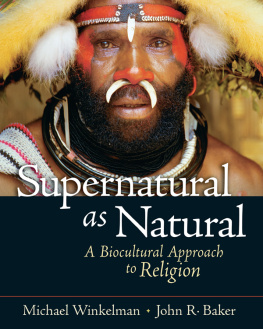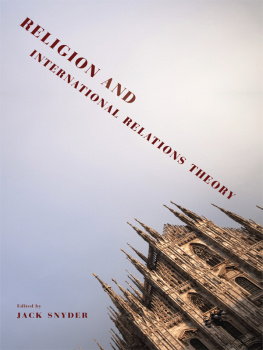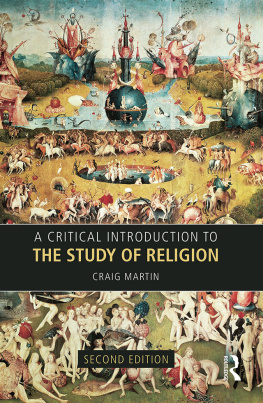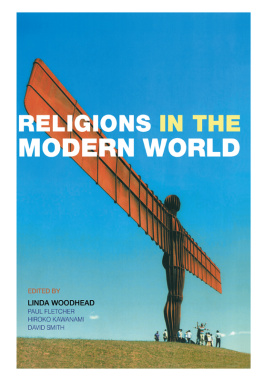All Religion Is Inter-Religion
Also available from Bloomsbury
Interreligious Comparisons in Religious Studies and Theology, edited by Perry Schmidt-Leukel and Andreas Nehring
New Patterns for Comparative Religion, William E. Paden
The Problem with Interreligious Dialogue, Muthuraj Swamy
All Religion Is Inter-Religion
Engaging the Work of
Steven M. Wasserstrom
Edited by
Kambiz GhaneaBassiri and Paul Robertson

Anne Oravetz Albert is the Klatt Family Director for Public Programs at the Herbert D. Katz Center for Advanced Judaic Studies, University of Pennsylvania. She is a historian of early modern Jewry, focusing on political thought and Jewish-Christian relations. She is currently completing a book on communal politics and political ideas among Spanish and Portuguese Jews in Amsterdam in the time of Spinoza and Shabbetai Tsvi.
Andrew D. Berns is Assistant Professor of History at the University of South Carolina. His research investigates the intellectual and cultural history of Jews in the medieval and early modern Mediterranean, especially Italy and Spain. He is the author of The Bible and Natural Philosophy in Renaissance Italy: Jewish and Christian Physicians in Search of Truth (2015).
Jeremy P. Brown is Simon and Ethel Flegg Postdoctoral Fellow in Jewish Studies at McGill University. He earned his PhD in Hebrew and Judaic Studies from New York University. His research and teaching interests include kabbalah, religion in medieval Iberia, and the historical intersections of Judaism, Christianity, and Islam. Brown has also taught at the University of San Francisco.
Dylan M. Burns is Research Associate at the Freie Universitt Berlin, in the Egyptological Seminar. His research focuses on Nag Hammadi and Gnosticism, later Greek Philosophy, and religion in late antiquity. He is co-editor of Nag Hammadi and Manichaean Studies, and author of Apocalypse of the Alien God: Platonism and the Exile of Sethian Gnosticism (2014).
Michael Casper is Doctoral Candidate in History at the University of California, Los Angeles. His research focuses on modern Eastern European Jewish politics and culture, especially through Yiddish sources. He is currently working on a book on the history of Hasidic Williamsburg with Nathaniel Deutsch.
Kirsten Collins is Doctoral Student in the Divinity School at the University of Chicago. Her research concerns French and Hebrew literature and theory after the Second World War, focusing on how the concepts of Judaism that developed in these cultural spheres challenge the boundaries between the religious and the secular.
Kambiz GhaneaBassiri is Professor of Religion and Humanities at Reed College. A specialist in Islamic social and intellectual history, Islam in America, material dimensions of religion, and religious diversity in US history, GhaneaBassiri is the author of numerous publications including A History of Islam in America: From the New World to the New World Order (2010).
J. Gregory Given is Doctoral Candidate in the Study of Religion at Harvard University, specializing in New Testament and Early Christianity. His research primarily focuses on Christian literary culture in late antiquity, Coptic language and literature, and historiography, and he is currently completing a dissertation on the letters of Ignatius of Antioch. He has recently published articles in the Journal of Early Christian Studies, Journal of Coptic Studies, and Archiv fr Religionsgeschichte.
Peter E. Gordon is the Amabel B. James Professor of History and Faculty Affiliate in the Department of Philosophy at Harvard University. His books include Rosenzweig and Heidegger: Between Judaism and German Philosophy (2003); The Cambridge Companion to Modern Jewish Philosophy, co-edited with Michael Morgan (2017); Continental Divide: Heidegger, Cassirer, Davos (2010); Adorno and Existence (2016); and The Routledge Companion to the Frankfurt School (2018).
Ruchama Johnston-Bloom is Associate Director of Academic Affairs at CAPA: The Global Education Networks London center. Her research focuses on Jewish responses to, and engagements with, European imperialism, colonialism, and Orientalism. She has published on Gustav Weils Koranforschung, Kurban Saids Ali und Nino, and the relocation of German-Jewish Orientalist scholarship to Israel and the United States.
Sam Kigar is Assistant Professor of Religion at the University of Puget Sound. He specializes in modern Islamic thought and politics in the Maghreb.
Bruce Lincoln is Caroline E. Haskell Distinguished Service Professor Emeritus of the History Religions in the University of Chicago Divinity School. At various times, he has taught Humanities at the University of Minnesota, Cultural Anthropology at the Universit degli Studi di Siena, World History at Novosibirsk State Pedagogical Institute, History of Religions at Uppsala University and the University of Copenhagen, Ancient Iranian Philology at the Collge de France, and Anthropology, Classics, and Middle Eastern Studies at the University of Chicago, as well as offerings in his home department. The author of numerous books and articles, his most recent book is Apples & Oranges: Experiments in, on, and with Comparison (2018).
Paul Robertson is Lecturer in Classics and Humanities at the University of New Hampshire. His research includes ancient Mediterranean thought and theorizing religion. He is the author of Pauls Letters and Contemporary Greco-Roman Literature: Theorizing a New Taxonomy (2016).
Noah Salomon is Associate Professor of Religion and Director of Middle East Studies at Carleton College and the author of For Love of the Prophet: An Ethnography of Sudans Islamic State (2016). A recent recipient of a Mellon New Directions Fellowship, Salomon is currently exploring mechanisms for negotiating Islamic difference across several sites in Europe, Africa, and the Middle East.
Jeremy F. Walton is the Leader of the Max Planck Research Group, Empires of Memory: The Cultural Politics of Historicity in Former Habsburg and Ottoman Cities, at the Max Planck Institute for the Study of Religious and Ethnic Diversity (MPI-MMG) in Gttingen, Germany. He received his PhD in Anthropology from the University of Chicago in 2009. His first book, Muslim Civil Society and the Politics of Religious Freedom in Turkey (2017), is an ethnographic exploration of the relationship among Muslim civil society organizations, state institutions, and secularism in contemporary Turkey.
Steven M. Wasserstrom is the Moe and Izetta Tonkon Professor of Judaic Studies and Humanities at Reed College. A specialist in Jewish Studies, Islamic Studies, and the history of the study of religion, Wasserstrom is the author of Between Muslim and Jew: The Problem of Symbiosis under Early Islam (1995) and Religion after Religion: Gershom Scholem, Mircea Eliade, and Henry Corbin at Eranos (1999).
Elliot R. Wolfson, a Fellow of the American Academy of Jewish Research and the American Academy of Arts and Sciences, is the Marsha and Jay Glazer Endowed Chair in Jewish Studies and Distinguished Professor of Religion at University of California, Santa Barbara. His is the author of many publications, the most recent of which include: Giving beyond the Gift: Apophasis and Overcoming Theomania (2014); The Duplicity of Philosophys Shadow: Heidegger, Nazism and the Jewish Other (2018) and Heidegger and Kabbalah: Hidden Gnosis and the Path of Poiesis
Next page
